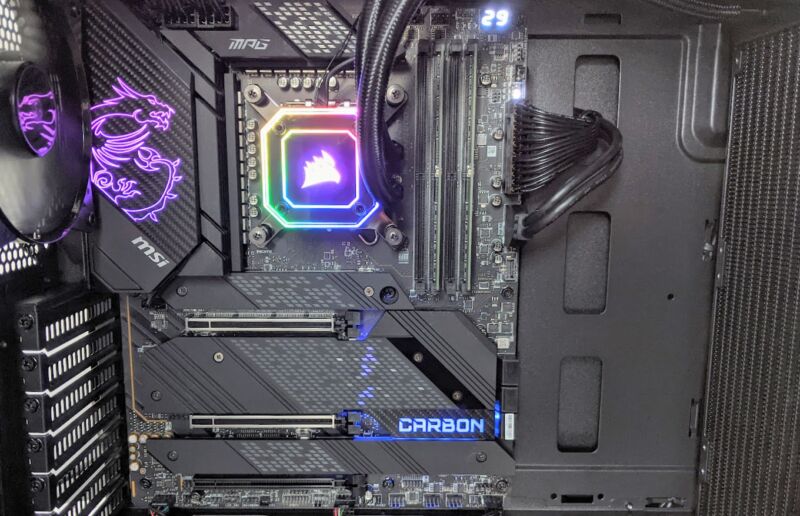Intel’s Alder Lake big.little CPU design, tested: It’s a barn burner

Enlarge / Our test rig marries the Alder Lake i9-12900K (pictured) or the i5-12600K with 64 GB DDR5 SDRAM, an MSI Carbon motherboard, SK Hynix Gold NVMe SSD, and Apex Gaming 850M PSU. Cooling is provided by a Corsair fluid cooler and triple fan radiator. (credit: Jim Salter)
After spending several days with Intel's newest consumer CPU designs, we have some surprising news: they're faster than AMD's latest Ryzens on both single-threaded and most multithreaded benchmarks.
We suspect this will be especially surprising to some, since Intel's newest desktop CPUs feature a hybrid "big.little" design similar to those found in ARM CPUs. AMD's flagship Ryzen 9 5950x is a traditional 16 core, 32 thread design, with all cores being "big" high-performance types with symmetric multithreading (SMT, also known as "hyperthreading"). By contrast, the i9-12900K offers 16 cores and only 24 threads-with eight "performance" cores featuring SMT and eight lower-performance "efficiency" cores with no SMT.
Although the world largely understands big.little design in mobile CPUs-where the value of having slow but efficient cores for non-latency-sensitive tasks means longer battery life and less waste heat-the value isn't as well-understood in desktop CPUs, where power and thermal budgets aren't such an obvious problem. But there's still good reason for hybrid designs even on the desktop-die space remains sharply limited in CPUs, and you can fit more of the smaller "efficiency" cores into a given package size.
Read 23 remaining paragraphs | Comments